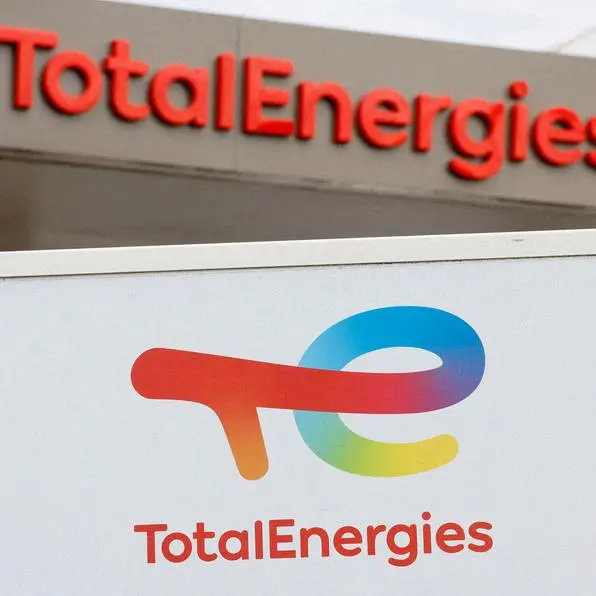PHOTO
THERE was outrage in the polity recently following a circular issued by Nigeria’s apex bank, the Central Bank of Nigeria (CBN), ordering banks in the country to start charging a cybersecurity levy on electronic transactions. The circular disclosed that the implementation of the levy would start within two weeks from the issuing date, meaning the law was to take effect from May 20, 2024. The circular was sent to all commercial, merchant, non-interest and payment service banks, among others. It was a follow-up on an earlier letter dated June 25, 2018 (Ref: BPS/DIR/GEN/CIR/05/008) and October 5, 2018 (Ref: BSD/DIR/GEN/LAB/11/023), respectively, on compliance with the Cybercrimes (Prohibition, Prevention, Etc.) Act 2015. The consequences of non-compliance include a fine of not less than two percent of the defaulting business’s annual turnover upon conviction. Predictably, the circular generated widespread anger among Nigerians, who rose in protest against what they called the penchant of the Bola Tinubu-led Federal Government to inflict pain on them through obnoxious policies.
Among other reactions, the Nigeria Labour Congress (NLC), on Tuesday, May 7, condemned the CBN’s directive. In a statement by its president, Comrade Joe Ajaero, the union lamented that the levy was another anti-people policy of the Tinubu-led government amid excruciating economic hardship. And as tensions heightened across the country, the two arms of the National Assembly, the Senate and House of Representatives, disagreed on the propriety of the levy. While the Senate said there was nothing wrong with the levy as both arms passed it into law, the House of Representatives asked the CBN to suspend its implementation following the public outcry that trailed it. According to the Red Chamber, the cybersecurity levy came into being through a collaborative effort that involved the National Assembly’s ICT and Cyber Security Committee and a transparent public hearing process, and both arms of the National Assembly unanimously passed it before President Tinubu signed it into law. The levy, it said, was aimed at protecting national security and the economy. The provisions of the law had been in place since 2015, it said, but were delayed due to unclear interpretations and applications. It, however, clarified that the levy was not punitive as it had numerous exemptions to protect ordinary citizens, particularly the poor. According to it, the exemptions include salary payments, intra-account transfers, loan disbursements and repayments, and other financial transactions.
On its part, however, the House of Representatives directed the CBN to suspend implementation of the levy. It also directed the CBN to withdraw the ambiguous circular in existence and issue an unequivocal circular in line with the letters and spirit of the Cybercrimes (Amendment) Act, 2024. Stating that the “businesses which the said Section 44(2)(a) refers to are listed in the Second Schedule to the Cybercrimes Act to be: a) GSM Service Providers and all telecommunication companies; b) Internet Service Providers; c) Banks and Other Financial Institutions; d) Insurance Companies and e) Nigerian Stock Exchange,” the Green Chamber said it was “concerned that the wordings of the CBN circular leaves (sic) the CBN directive to multiple interpretations, including that the levy be paid by bank customers, that is, Nigerians, against the letters and spirit of Section 44(2)(a) and the Second Schedule to the Cybercrimes Act, which specifies the businesses that should be levied accordingly.” Thus, apparently worried by the turn of events, the Federal Government suspended the levy, saying that a review was underway.
Related PostsUche Nwosu supports Tinubu’s decision to suspend cybersecurity levyOnly telcos, banks, NSE, internet service providers will pay Cybersecurity levy — RepsFG confirms suspension of cybersecurity levy
There are indeed a number of issues thrown up by the cybersecurity issue. In the first place, the law adds to the layer of taxes that businesses in the country have to contend with, and will definitely have deleterious effects on the business climate. Second, the circular by the CBN was evasive and misleading. It failed to specify the businesses expected to be affected by the levy, as outlined by the law. The outrage generated in the polity has highlighted the oddity of the circular, and the bank must tread more carefully going forward. Regardless of the fact that the levy has been suspended, there are valid reasons to be troubled by the enabling law in its present form. As noted by the Nigerian Economic Summit Group (NESG), the effective tax rate paid by businesses could exceed the actual Corporate Income Tax (CIT) rate when some additional taxes/levies, including the Tertiary Education Tax (2.5 percent of profit), the National Information Technology Development Agency Levy (1 percent of profit), the National Agency for Science and Engineering Infrastructure Levy (0.25 percent of profit), and the Police Trust Fund Levy (0.005 percent of profit), are taken into account. The group also submitted, quite rightly in our own view, that “an increase in tax could stimulate an upward trend in other prices in the economy, further elevating inflationary pressure as businesses immediately factor such a levy as an additional cost into the price of goods and services which could aggravate social restiveness among the populace,” and that “amidst limited buffer for health, education and food security, the policy will exert adverse impact on household whose disposable income has been squeezed by persist inflationary pressure.”
At the moment, bank customers are groaning under the regime of multiple charges. If banks and the other organisations outlined in the law start paying the levy, they will inevitably transfer the additional burden to ordinary Nigerians. That completely nullifies the National Assembly’s position that the law protects the poor. If bank charges, including SMS charges, VAT, card maintenance levy, stamp duty, outflow/inflow fees, among others, are already squeezing Nigerians to death, it amounts to outright political brutality to add yet another layer of exploitation into the matrix under the guise of national cybersecurity. If the cybersecurity law is implemented in the current form, it will only succeed in suffocating long-suffering Nigerians. It is disturbing that the government has been keen on imposing taxes on the people without the delivery of commensurate quality service to inspire and guarantee public confidence. Nigerians are contending with severe economic challenges and the new cybersecurity levy is bound to be yet another devastating blow. In its desperation to generate funds, the government must mind the thorns. Nigerians ought to be encouraged to look up to the government for succour rather than seeing it as an institution set up to further impoverish them, making life meaningless and hopeless.
Besides, the office of the National Security Adviser (NSA) is not a revenue collector, but that precisely is what the cybersecurity law makes it. Yet, if current history is anything to go by, Nigeria cannot afford to take such huge risk. The office, like many others in the country, has been plagued by allegations of monumental corruption, and there are ongoing court cases over them. Rather than merely suspending the levy, a creation of law, we urge the Tinubu-led government and the National Assembly to undertake a surgical review and abolish its extortionate provisions. That way, the businesses targeted by the law and the majority of Nigerians who are bound to bear the brunt of its implementation will be saved further excruciating agony.
Copyright © 2022 Nigerian Tribune Provided by SyndiGate Media Inc. (Syndigate.info).





















